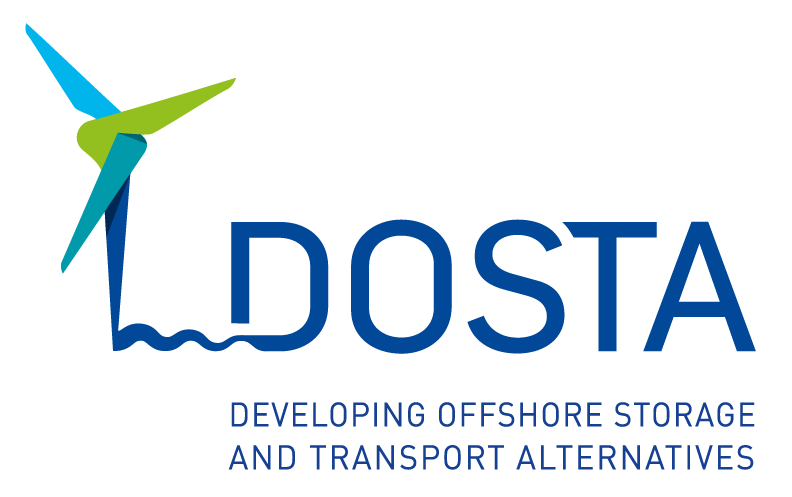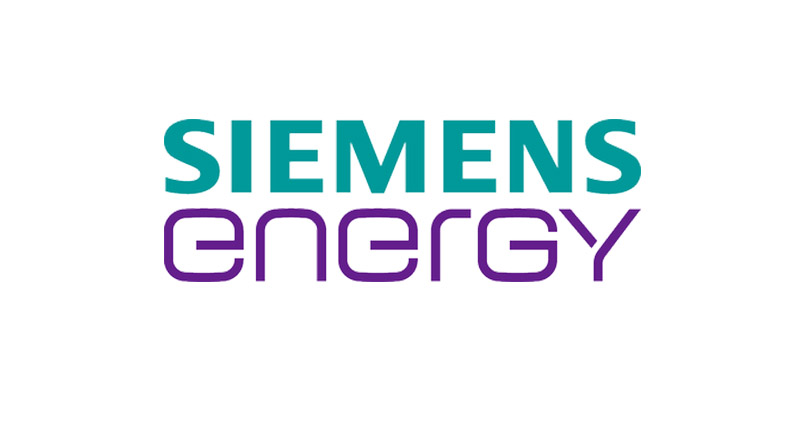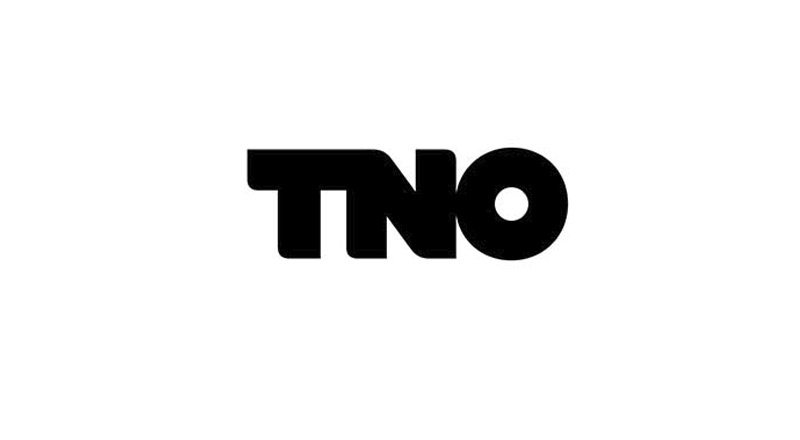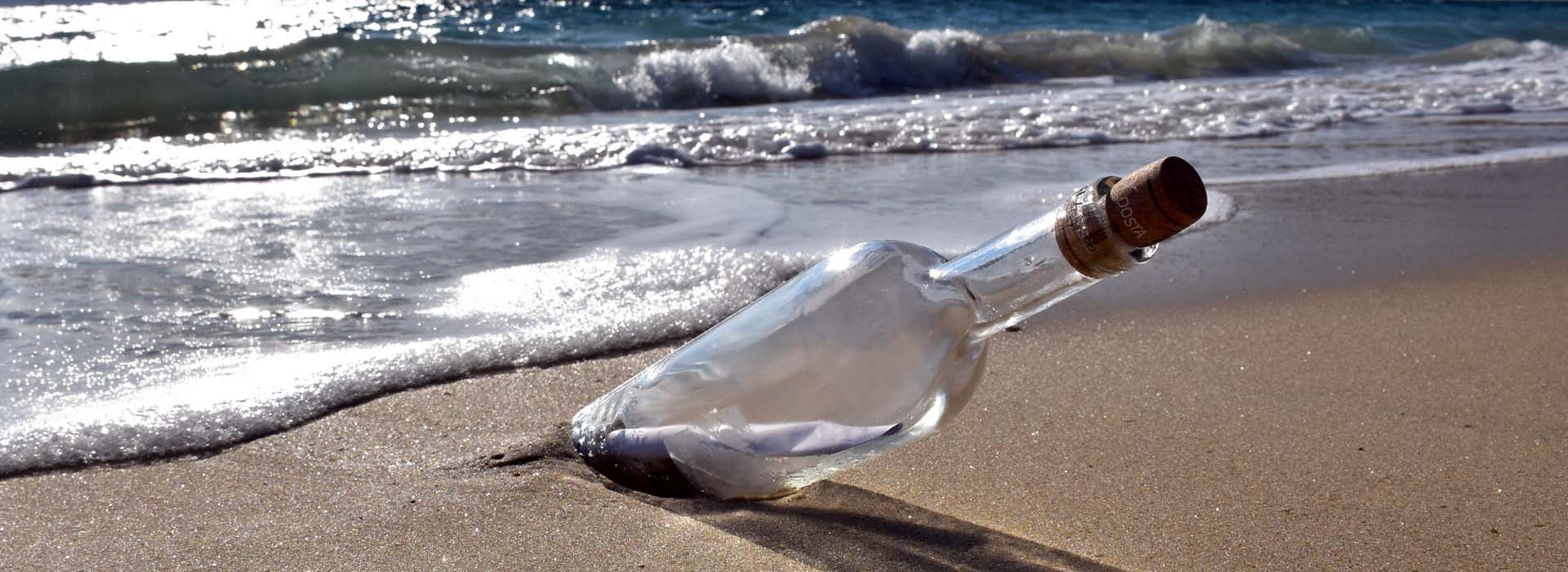
PUBLICATIONS
Modeling Hydrogen Applications in Combined Cycle Heat and Power Plants
Jan F. Wiegner, Norbert Sürken, Ralf Neuhäuser, Madeleine Gibescu, Matteo Gazzani
Read more
An article on combined cycle heat and power (CHP) plants is one of the results of the . CHP plants are expected to play an important role in balancing generation of heat and electricity from non-dispatchable renewable energy. Retrofitting a CHP plant for hydrogen combustion is considered as a prominent option to decarbonize (part of) its electricity and heat generation.
The article presents different options for using hydrogen in CHP plants, namely: direct combustion in the gas turbine, supplementary firing in the heat recovery boiler (duct burner), and oxy-fuel combustion of hydrogen for direct steam production. The article will be published in the International Journal of Hydrogen Energy in summer 2023.
The Regulatory Framework for Green Hydrogen Developments in the North Sea
Liv Malin Andreasson in Martha M. Roggenkamp and Catherine Banet (eds), European Energy Law Report XIV, Intersentia, 2021, p. 295- p. 314
Read more
This chapter XIV was written during the DOSTA project but all relevant research was carried out earlier as part of the North Sea Energy Programme 3, which was funded by TKI New Gas and TKI Wind op Zee (see also ‘Regulatory Framework: Legal Challenges and Incentives for Developing Hydrogen Offshore”, report June 2020).
Regulering (nettoegang) energieopslag op de Noordzee
Max Oosterhuis in Nederlands Tijdschrift voor Energierecht nr. 5/6-2022, p. 259 – p. 268.
Read more
This article on the regulatory regime on offshore energy storage was written by Mr. Max Oosterhuis, attorney at the law firm Loyens & Loeff in Rotterdam. The law form is one of the industrial partners participating in the DOSTA project and this article is one of the in-kind deliverables of the law firm. The entire article can be read by using this link.
Exploring agenda-setting of offshore energy innovations: Niche-regime interactions in Dutch Marine Spatial Planning processes
Juul Kusters, Ferry van Kann and Chris Zuidema in Environmental Innovation & Societal Transitions, June 2023. Read here
Read more
This article discusses how the large-scale growth of offshore wind energy towards 2050 obliges scholars and policymakers to start considering its integration in the wider offshore energy system. Both technological innovations and advances in spatial policy are necessary to facilitate offshore system integration. The study explores barriers and opportunities affecting the prioritization processes involving offshore energy storage and transport concepts in Dutch marine spatial planning practice.
It demonstrates that agenda-setting is largely influenced by established stakeholders, including the oil and gas and offshore wind sectors and prioritization is hindered by a short-term (2030) governmental fixation and long-term institutional ambiguity. It argues that supportive institutions are needed in order to provide regulatory certainty and reliable incentive mechanisms, whilst remaining adaptive to address imminent uncertainties, in pursuit of system integration needed for an energy transition.
Interdisciplinary perspectives on offshore energy system integration in the North Sea: A systematic literature review
Jan Wiegner, Liv Malin Andreasson, Juul Kusters, and Robbert Nienhuis, in Renewable and Sustainable Energy Reviews, 189, 2024. Read here
Read more
This article presents a systematic literature review of the current status of academic literature on offshore energy system integration in the North Sea, with a specific focus on the innovative technologies researched in the DOSTA project (i.e. offshore energy storage, offshore hydrogen, interconnectors).
A wide range of barriers to its development is identified, from techno-economic challenges, to gaps in legal frameworks, permitting complexities and spatial competition.
Inge Ossentjuk, Jan Wiegner, Robbert Nienhuis, Jasper Griffioen, Antonis Vakis, and Matteo Gazzani. Read here
Read more
Abstract
Energy storage systems (ESS) are required to overcome the challenges of large-scale integration of variable renewable energy. Specifically, offshore ESS can increase the utilisation of offshore transmission cables and reduce stress on the grid. Marine pumped hydro storage (PHS) is a promising technology in this domain [1]. This study focuses on the role of a subsea PHS system in offshore wind farms, taking the Dutch North Sea as a case study. This novel technology stores electricity on the seabed by pumping water to a reservoir subject to the hydrostatic pressure of the overlying seawater, and releases it by letting the water flow back through a set of turbines to a second reservoir at atmospheric pressure, thus utilising the change in potential energy associated with pressure difference.
Anthropogenic activities increasingly deploy marine environments as sites of operation. Besides traditional uses like fisheries, navigation, defence and
mining, the climate and biodiversity crises respectively call for the uptake of offshore renewable energy systems and biodiversity-enhancing structures such as artificial reefs. These activities affect the marine host ecosystems, though impacts can be both beneficial (providing artificial habitats) and detrimental (disturbing species) [2].
The European Topic Centre on Inland, Coastal and Marine waters highlights the importance of marine spatial planning and environmental impact assessment (EIA) methods in elucidating conflicts of interest between the development of offshore renewable energy and protection of the marine environment [3]. Though the environmental impacts of offshore renewable energy projects such as wind and even wave farms have been investigated and are safeguarded by EIA legislation, only few studies can be found on offshore energy storage. Research on offshore ESS mainly focuses on either the (life-cycle) environmental impacts of a technology, or on the technical and/or economic performance in terms of efficiency, feasibility or costs and benefits. The combination is lacking for specific technologies and areas, such as subsea PHS. Therefore, this study integrates a techno-economic modelling approach with EIA methodology with the objective of obtaining the techno-environmental potential of subsea PHS as a novel offshore energy storage system.
First, a literature review is conducted to compose a framework for the assessment of biological, chemical and physical impacts of offshore energy storage systems, consisting of a list of impact indicators and, if available, threshold values. Second, the framework is applied to a case study of subsea PHS in the Dutch North Sea. The technical potential, i.e., the optimal installed capacity from a technical point of view, is determined by modelling the Dutch planned offshore wind farms until 2030, allowing for installation of the storage technology to minimise curtailment of wind energy in the system. The model is formulated as a mixed-integer linear program. Third, the impact indicators are investigated for the resulting technology size and, taking threshold values into account, the environmental potential is determined. Last, trade-offs between technical performance and ecological effects are identified and discussed.
RECENT NEWS
DOSTA organizes its Final Conference
On November 4, 2024, the DOSTA project concluded with a final conference at the iconic REM-Eiland in Amsterdam. The event marked the culmination of four years of multidisciplinary research to advance offshore energy storage and transport solutions to support the Netherlands’ ambitious goal of achieving up to 75 GW offshore wind capacity by 2050.
Key Highlights of the Day
- Opening Insights: Dr. Iratxe Gonzalez Aparicio (Portfolio Manager System Integration at TNO) opened the conference with a comprehensive overview of energy developments in the North Sea before and after the DOSTA initiative, highlighting the transformative impact of the project on regional energy strategies.
- North Sea as a Hub for the Energy Transition: Diederik Samsom, Chair of the Supervisory Board of Gasunie, shared his perspective on leveraging the North Sea as a pivotal instrument in the energy transition at the national and European levels.
- Market Conditions to Foster Dutch Offshore Wind: Ireen Geerbex, who is the Director of Market Development Offshore Wind in the Netherlands at Vattenfall, outlined the critical market conditions needed to ensure a successful roll-out of offshore wind energy in the Netherlands.
- Interdisciplinary Insights from DOSTA: A panel of four DOSTA PhD researchers shed light on the interdisciplinary perspectives, showcasing innovative approaches to integrated offshore energy systems and presenting actionable insights from the DOSTA project.
- Policy Recommendations for a Thriving Offshore Wind Sector: The event concluded with the presentation of the DOSTA Policy Report, a comprehensive document outlining recommendations to accelerate offshore energy solutions.
A Celebration of Interdisciplinary Collaboration
The conference brought together leading experts, researchers, policymakers, and industry representatives, reaffirming the importance of multidisciplinary collaboration in tackling complex energy challenges.
We extend our heartfelt thanks to all participants and contributors for making the DOSTA project and its final conference a great success. We also wish the PhD researchers success in all their future endeavours.
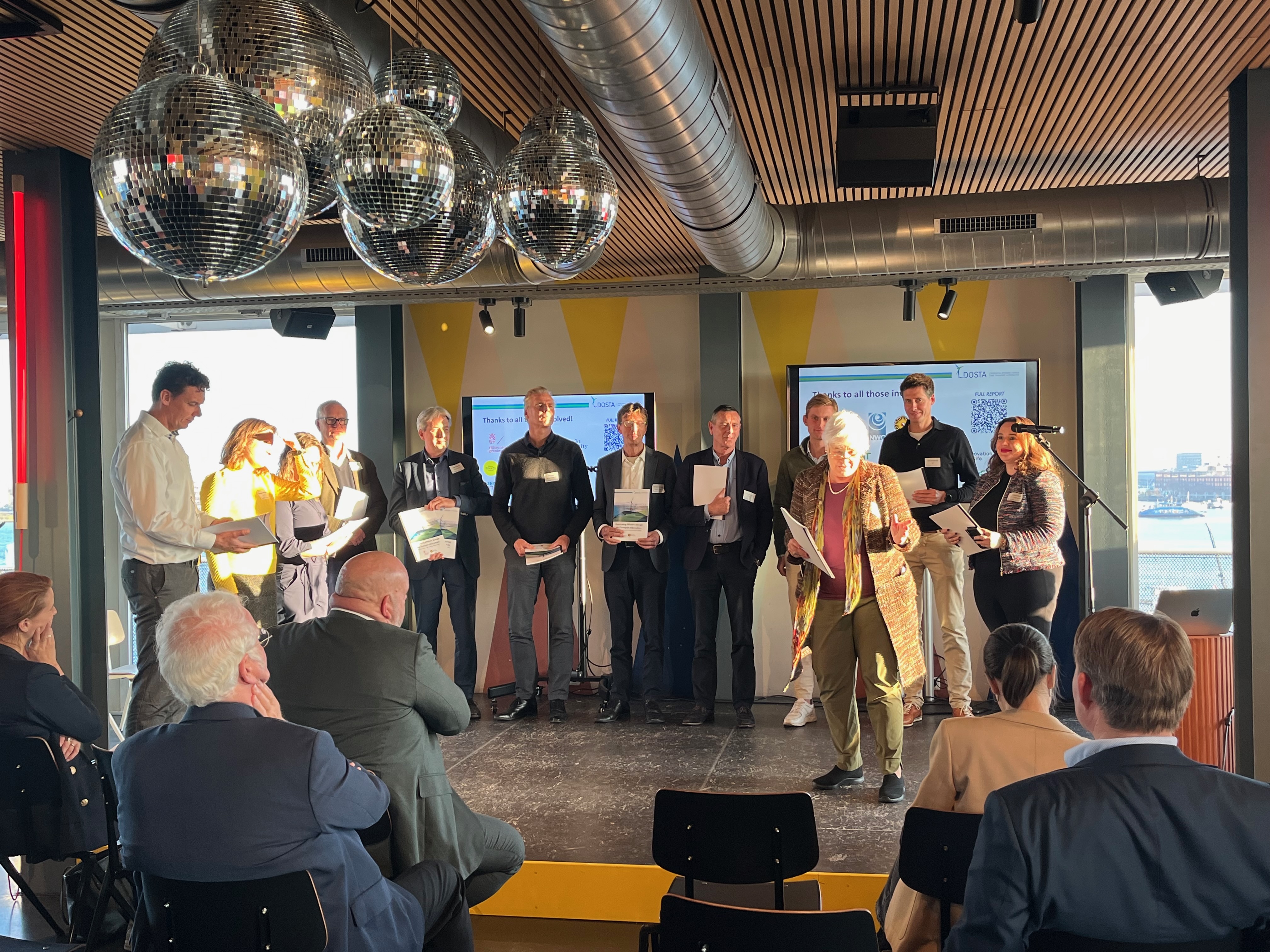
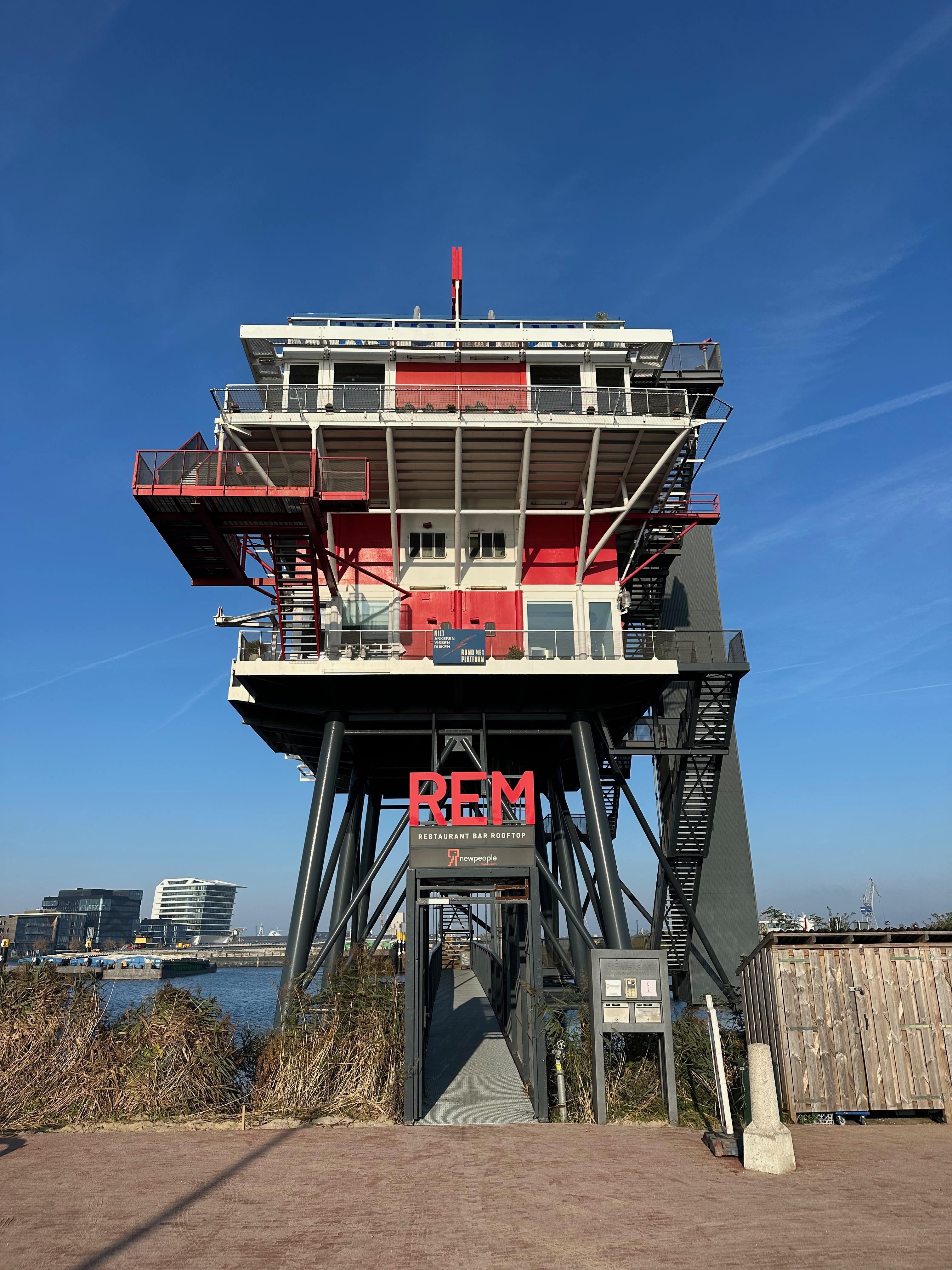
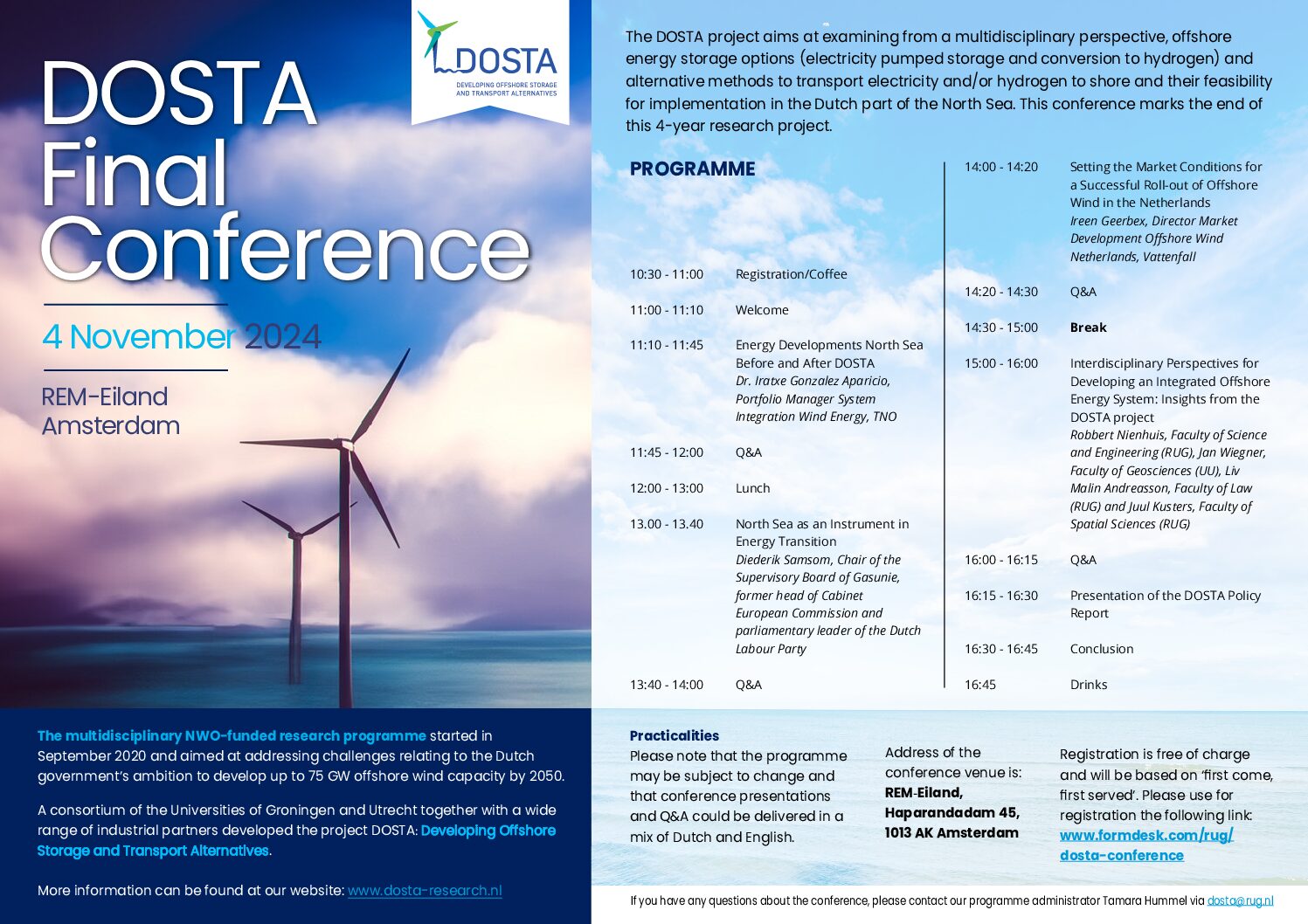
DOSTA Talks: Exploring Offshore Energy Solutions in the Dutch North Sea
The DOSTA team is excited to share the highlights of our first public event, DOSTA Talks! On June 15, 2023, we welcomed 16 attendees at the Energy Academy Europe, while an additional 18 participants joined us online. This event provided valuable multidisciplinary insights into offshore system integration.
The session began with a warm welcome from project leader, Prof. em .Martha Roggenkamp, who introduced the audience to the objectives of our research. Robbert Nienhuis took the stage to present his work on the development of the Ocean Battery and its potential to revolutionize offshore energy storage.
Jan Wiegner then shared fascinating insights into energy system modeling and how it can effectively harness the vast offshore wind energy reserves. Shifting focus to governance implications, Juul Kusters shed light on the future offshore energy system’s governance challenges. Lastly, Liv Malin Andreasson discussed the legal barriers surrounding offshore system integration, along with potential solutions.
The interactive session was followed by a question and answer round and networking drinks. We extend our heartfelt appreciation to all the speakers and participants for their valuable contributions to making the event informative and interactive.
For any questions or comments, please reach out to us via the contact form.
NEWS
Cooperation with Industrial Partners: secondments
The DOSTA project includes the requirement that all PhD researchers will have a secondment with one of the industrial partners. See further below:
Secondment – Siemens Energy
From March to September 2022, Jan Wiegner has undertaken a secondment at Siemens Energy in Mülheim (Germany). During his stay, he studied novel ways of hydrogen use in existing gas-fired power plants to reduce their carbon footprint. Using hydrogen in existing natural-gas fired power plants is considered an essential building block for the decarbonization of electricity generation. Such retrofitted power plants can facilitate the large-scale integration of fluctuating renewable electricity generation.
The group established a detailed model of an exemplary gas-fired power plant that was used to economically and environmentally evaluate hydrogen applications in these plants. Therefore, they first developed a model of an exemplary CHP plant in a detailed non-linear process model based on the principles of thermodynamics and fluid-dynamics. This process model provides enough load points to fit a surrogate, mixed-integer-linear model that can optimize the plant operation economically within a reasonable computation time. Then they validated the surrogate model and use it to study (1) economic hydrogen combustion in a combined cycle plant, and (2) evaluate the economic benefit of retrofitting the plant with a duct burner or an oxy-fuel hydrogen burner. The outcome of his research will be published early Summer 2023.
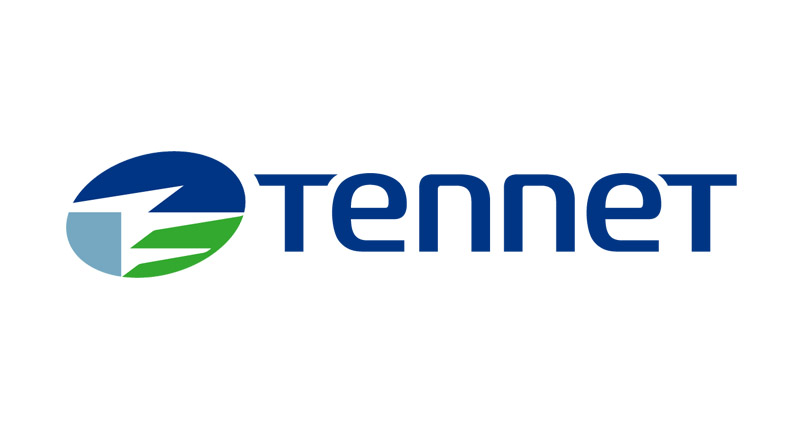
Secondment – TenneT
In December 2022, PhD researcher Liv Malin Andreasson completed her 6-week secondment at TenneT, which is the Dutch transmission system operator tasked with providing electricity transmission and system services. TenneT is also the designated system operator of the offshore transmission grid and is responsible for connecting offshore wind farms by developing the necessary onshore grid connections. At present, offshore wind turbines and interconnectors operate as stand-alone assets. However, given the intention to develop a meshed electricity grid offshore, alternative cable connections must be considered and their regulation defined. The secondment at TenneT was therefore organized to support research on the legal framework (or lack thereof) pertaining to alternative cable connections offshore.
During her secondment, Liv Malin investigated from a legal perspective how to use the offshore grid connection system more efficiently by developing multi-purpose interconnectors in the North Sea. Multi-purpose interconnectors combine transmission of electricity generated by (and direct connection to) offshore wind farms with cross-border interconnections between onshore electricity grids in several countries. In addition, the development of a legal framework for consumer connection to the offshore grid (storage and power-to-gas facilities) was assessed. During the secondment, Liv Malin therefore expanded her knowledge of the integration of the North Sea energy system and identified necessary changes and adaptations in EU and national legislation to facilitate such integration. The guidance and support of TenneT is very beneficial as it provides the necessary input to better understand the role of the transmission system operator in the development of the offshore electricity grid. Liv Malin is looking forward to utilizing the knowledge and experience gained in her PhD research.
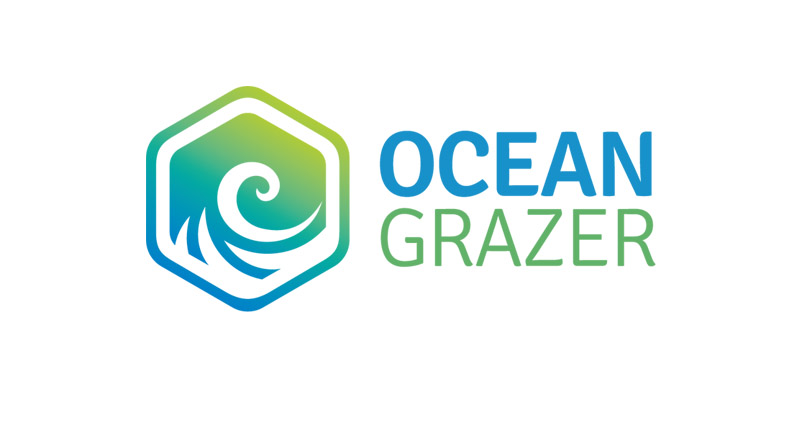
Secondment – OceanGrazer
Robbert Nienhuis is completing his secondment at OceanGrazer.
Cooperation with Industrial Partners: presentations and meetings
The academic partners and the industrial and societal partners have met several times to discuss progress. Initially and due to Covid 19 these meetings were online. A first physical meeting took place in 21 September 2022 at the offices of Loyens & Loeff in Amsterdam. During this meeting the PhD researchers presented their research, which led to a fruitful discussion with the industrial and societal partners.
Liv Malin Andreasson
Liv Malin Andreasson has presented her research at a meeting on 17 November 2022 of the Dutch Energy Law Association (NeVER). The meeting on ‘Energy transition at sea’ (Energietransitie op zee) took place in Amsterdam. A report of the meeting has been published on the Dutch Journal of Energy Law, NTE 5-6/2022, p. 279 – p. 284.
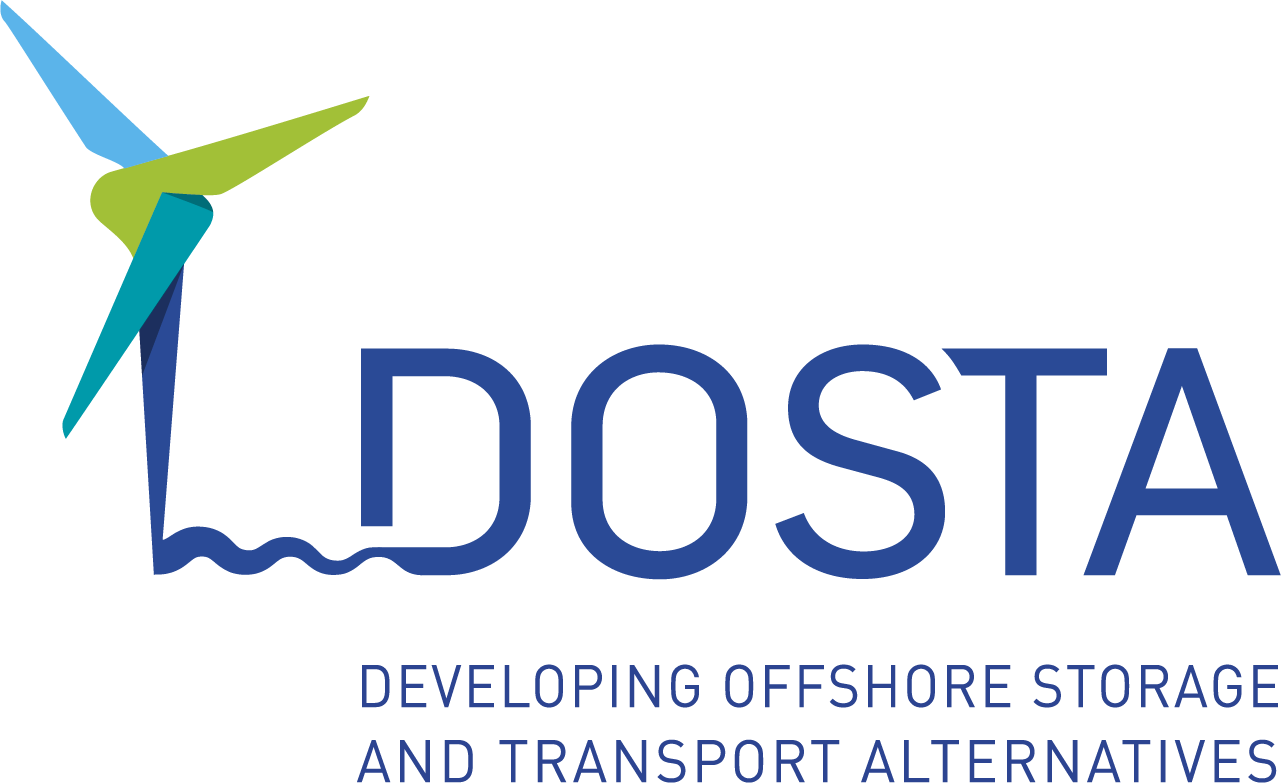
Faculty of law
Postbus 716
9700 AS Groningen
The Netherlands
© 2023 DOSTA
The project DOSTA with project number (WIND.2019.002) of the NWO research programme PhD@Sea is (partly) financed by the Dutch Research Council (NWO).”

![]()
![]()
